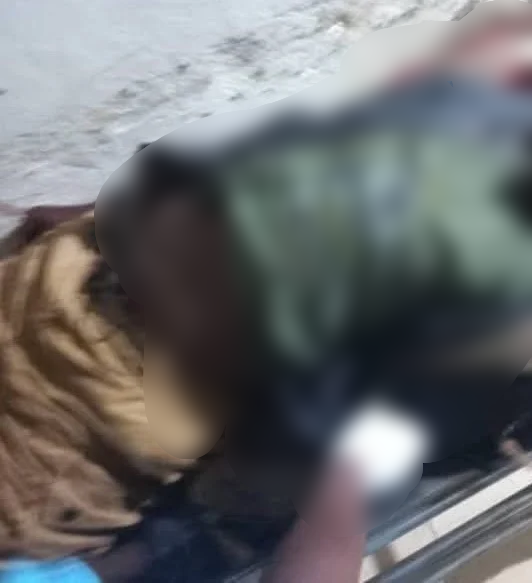The tranquil dawn in Denase, a community nestled within the Afigya Kwabre North District of Ghana’s Ashanti Region, was shattered by a chilling act of violence that has left residents grappling with fear and uncertainty. The targeted killing of a prominent Mamprusi activist, known as Abiola, in an ambush near Offinso has sent shockwaves through the region, raising concerns about escalating tensions and the potential for further unrest. The incident, which occurred in the early hours of the morning, unfolded as Abiola was traveling on a commercial bus bound for Tamale. Unknown assailants intercepted the vehicle, unleashing a barrage of gunfire that claimed the life of the driver and fatally wounded Abiola. Three other passengers were caught in the crossfire, sustaining injuries that required immediate medical attention at the Offinso Saint Patrick Hospital.
The targeted nature of the attack, coupled with the recent shooting of a Kusasi chief in Asawase, has fueled speculation about a possible connection between the two incidents and raised fears of retaliatory violence. While the motives behind Abiola’s killing remain shrouded in mystery, the timing and circumstances have heightened anxieties among local communities already grappling with underlying tensions. The two incidents, occurring in close proximity both geographically and temporally, have created a palpable sense of unease and sparked urgent calls for enhanced security measures. Community leaders are imploring law enforcement agencies to intensify patrols, conduct thorough investigations, and swiftly apprehend the perpetrators to prevent further escalation and restore a sense of security to the region.
Abiola, remembered by his family and supporters as a passionate advocate for unity and development within the Mamprusi community, leaves behind a legacy of activism and a void within the community he served. His untimely death has not only sparked grief and outrage but also ignited concerns about the potential for further violence and unrest in a region grappling with complex inter-communal dynamics. The incident underscores the fragility of peace and the urgent need for proactive measures to address underlying grievances and promote peaceful coexistence among diverse groups. The call for justice resonates deeply within the community, as residents seek answers and reassurance that those responsible for this brazen act of violence will be held accountable.
The Offinso Police Command, tasked with unraveling the circumstances surrounding this tragic incident, has launched an investigation and is appealing to the public for assistance. They are urging anyone with information, no matter how seemingly insignificant, to come forward and aid in their efforts to identify and apprehend the perpetrators. The investigation faces the challenge of piecing together the events that led to the ambush, determining the motive behind the attack, and identifying those responsible. The pressure on law enforcement to deliver results is immense, as the community anxiously awaits answers and justice for Abiola and the other victims.
The incident has exposed underlying tensions that have simmered beneath the surface of these communities. While the specific motives behind the attack remain unclear, the context of existing inter-communal dynamics suggests that the violence may be rooted in deeper unresolved conflicts. The incident serves as a stark reminder of the importance of addressing these underlying issues and promoting peaceful dialogue and conflict resolution mechanisms to prevent further escalation. The need for proactive engagement from community leaders, religious figures, and government officials to foster understanding and bridge divides has become more urgent than ever.
The ripple effects of this tragic event extend beyond the immediate community, serving as a wake-up call for the broader region and the nation as a whole. The incident highlights the need for stronger conflict resolution mechanisms, proactive community policing, and targeted interventions to address the root causes of inter-communal tensions. The path to healing and reconciliation will require a concerted effort from all stakeholders, including community leaders, law enforcement agencies, and government officials, to rebuild trust, foster understanding, and create a safe and secure environment for all residents. The pursuit of justice for Abiola and the other victims must be accompanied by a commitment to addressing the underlying causes of conflict and fostering lasting peace in the region.


